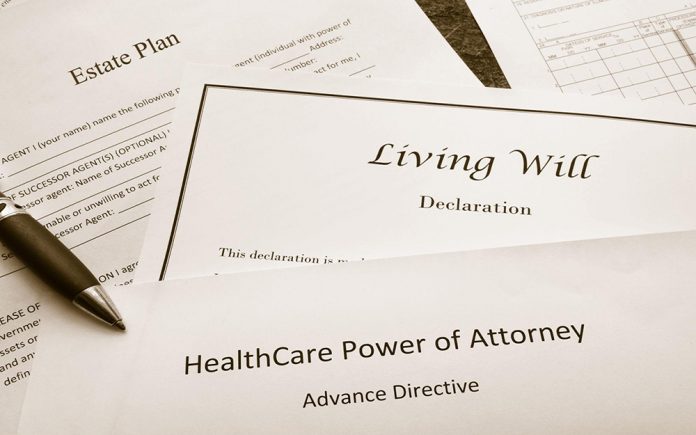
By Haddon Libby
Since the pandemic struck, nearly 15,000 people in the Coachella Valley have contracted the virus with nearly 350 deaths through September. In the United States alone, there have been more than 7.1 million confirmed cases and more than 205,000 deaths. Worldwide confirmed cases are more than 33.2 million with roughly 1 million deaths.
The pandemic has caused a period of extreme stress for many. With the livelihoods of tens of millions of people upended due to the virus, mental or stress-related health problems are increasing.
Whether you or someone that you know has had their job or health affected, the pandemic points out the need for every person to do some basic life planning.
If you become incapacitated, does another person have the legal authority to make your medical and financial decisions? If you are married, the answer is typically ‘yes’. If not, think about who would make those key decisions if you were unable to. The person that you trust with your healthcare decisions very well could be a different person that your finances.
Once you decide who will administer your affairs, you will need to draft two documents: a health care proxy and a financial power of attorney. These forms are generally available online or via an attorney and need to be notarized.
Do you have a living will? This is an important document that provides guidance to your family and advisors when you are unable to communicate your wishes directly. Living wills detail the type of efforts that you want medical professionals to put into saving your life in several situations.
In addition to a living will, do you have a last will and testament?
This document is critical in directing those responsible for settling your affairs (aka executor). If you have minor children, this designates who will care for them. The executor will have the responsibility for carrying out your instructions.
If your assets are held in a living or revocable trust, most of your affairs can be completed without the probate court system. Without a living trust, the division of your assets takes longer and decided by a judge with no knowledge of your wishes.
The University of Pennsylvania did a study a few years ago that reviewed 150 studies on the subject and found that about 2 in 5 people have advanced health care instructions in the event that they are unable to make these decisions for themselves.
Looking inside the numbers, 1 in 3 people had a health care proxy and financial power of attorney while 3 in 10 had living wills. Most disturbingly, only 2 in 5 people with a chronic health care problem had some form of health care directive.
Only 1 in 10 people earning between 100,000 and 150,000 have an up to date will. That number increases to 15% for those earning over $150,000 annually.
Those who do not have wills can expect that a large chunk of their assets will be spent on court costs, attorney fees and other third parties. On top of that, people whom you do not know will be making decisions on your behalf. If this is not enough to get you to take planning seriously, know that it takes anywhere from 6 months to 2 years for an estate to go through the probate process no matter how small.
While it is understandable that many people do not want to deal the somber idea of their eventual demise, planning in advance of your eternal encounter is the best way to help grieving family members and friends who mourn your passing.
If you need a hand with this or any part of your financial life, give us a call. That is what we are here for.
Haddon Libby is the Managing Partner and Founder of Winslow Drake Investment Management. For more information, please visit www.WinslowDrake.com or email Hlibby@WinslowDrake.com.









































